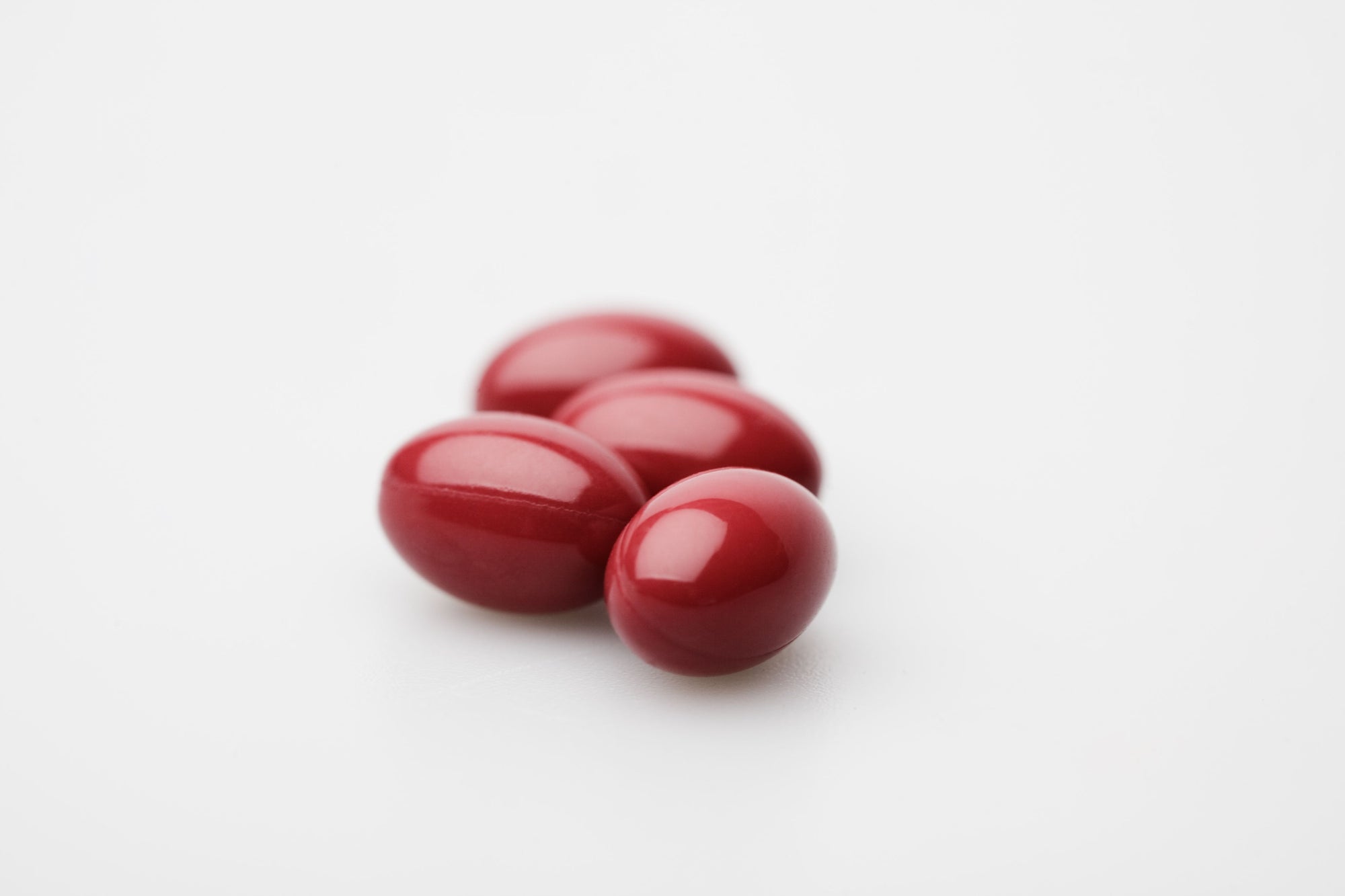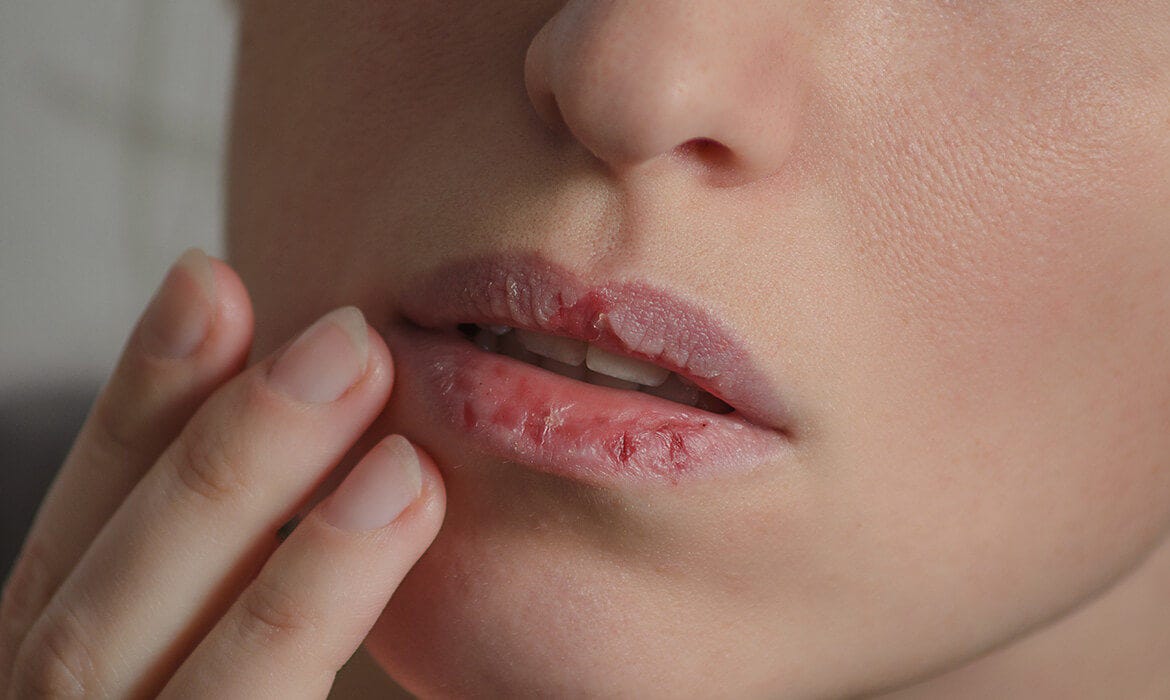
Retinoids aka Vitamin A – Skin saviour or slayer? 5 min read
October 08, 2020
Your dermatologist has prescribed you the holy grail of topical (and maybe even oral) acne slayers – retinoids otherwise known as Vitamin A. There are even cult American beauty brands that have released over-the-counter creams with vegan retinols as the hero ingredient. Despite all the hype around it, not everyone is on board. So is it something you should consider adding to your beauty routine? We are here to highlight the uses and dangers of Vitamin A-related treatments, especially if you are considering this to improve your skin condition.
WHAT IS VITAMIN A

Photo credit: Openfit
If you are into balanced eating, you are likely to be consuming eggs, fish, milk or vegetables such as carrots, broccoli or bell peppers daily. What they all have in common is their high concentration of vitamin A which helps to protect us inside and out - from our eyes and skin to our internal organs such as lungs, intestines, and urinary tract. In fact, this nutrient is so important that a lot of commercial milk and cereal products have also been fortified with additional Vitamin A to ensure that we get what we need!
So what’s the issue? Let’s stuff our faces with copious amounts of Vitamin A right?
Please don’t. And before we explain why, let’s dig deeper.
There are 2 forms of Vitamin A found in our food.

Photo credit: The Telegraph
Preformed Vitamin A — retinol and retinyl esters — found in animal products such as dairy, liver and fish oils (Cod Liver oil anyone?)
Provitamin A carotenoids are abundant in plant foods like fruits, vegetables and plant-based oils
It is a fat-soluble nutrient. What this means is its excess will get stored in our tissue for future use, with over 90% resting in our liver.
Now why are we discussing vitamins on our blog? Is OASIS going into supplements? No way. Is this post going to lead towards tips to better your appearance? You bet!
 Photo credit: Medical News Today
Photo credit: Medical News Today
TOO MUCH OF A GOOD THING IS NEVER GREAT
Balance is everything! Studies have shown that taking daily doses that are 10X the RDA (recommended daily allowance) or greater for a period of months can cause negative effects and sometimes even toxicity. Even if you are getting it from natural food sources!
The RDA is estimated to be at 900 mg for adult men and 700mg for women, and the required amount is ultimately dependent on your metabolic body weight. Therefore, given that Asians tend to be smaller in physical build, it is likely that the average Singaporean will need a lesser amount that the stated average.

Photo credit: Medium
VITAMIN OVERDOSE: Consuming too much vitamin A can cause the following:
- Coarse hair
- Partial loss of hair (including the eyebrows)
- Cracked lips, and dry, rough skin (common complaint of people on Vitamin A prescriptions)
- Sensitivity to the sun
- Liver abnormalities
- Loss of bone density
- Birth defects in a fetus (those looking to conceive – beware!)
Which brings us to our next point on supplementing your body with concentrated doses of Vitamin A (outside of your natural diet), and its potentially negative effects on your body.
VITAMIN A ORAL MEDICATIONS – ISOTRETINOIN
If it is a vitamin prescribed by doctors, it has got to be healthy right? This drug is commonly known as Accutane, and sometimes Roaccutane or Rizuderm.

Photo credit: Healthline
Another website warns of the following:
“There is an extremely high risk that severe birth defects will result if pregnancy occurs while taking Accutane in any amount, even for short periods of time.”
Do not use when pregnant or trying to conceive
With so many websites sounding these warnings, you know that you’re onto something potentially dangerous for your body. What scares us the most is not just the health dangers, but also the number of warnings each one of these websites and even news channels have on the possibility of depression or being suicidal.

Photo credit: ABC News
The good news is that any side effects that you feel while being on this drug will go away once you stop the medication, but repeated dosage can potentially pose a longer term problem to your overall health, both inside and out. If you have to be on this prescription, remember to monitor closely the duration you are on this drug, and watch the foods you are eating to avoid over supplementation. Consult your doctor!
TOPICAL MEDICATIONS – RETIN-A/DIFFERIN/RETACNYL
“Don’t use on eczema/broken skin”

Photo credit: skincaretopnews.com
This seems to be the darling of dermatological treatments, where these ointments or creams are said to give you radiant skin, cure acne conditions and reduce skin pigmentation. While most creams are formulated to be very low individually in its vitamin A concentration (from 0.25-1%), the industry watchdog Environmental Working Group (EWG) also notes that this ingredient can be found in many skincare products such as serums, moisturisers and even sunscreens. So it all adds up! Read their full report here
Many dermatologists will advise for an acclimatization of this ingredient where you may experience a bout of retinoid-uglies with acne purging, redness and all over irritation. Make sure that you are not starting on this routine with broken skin (like eczema) or having just gone through strong chemical peels. Embarking on this treatment when your skin barrier is weak can wreak havoc on your already compromised complexion!
CAN YOU GET THIS NATURALLY?

Yes you can! Studies have shown that products rich in beta-carotene such as Rosehip or Carrot Seed oil can act as an antioxidant on your skin and protect it from damaging free radicals. Rosehip oil naturally contains retinoic acid, vitamin C and E which aid in smoothening and plumping skin without being too concentrated in its Vitamin A content. What’s more, unlike retinoid creams, this oil can be used on eczema skin conditions AND pregnant women.
Get our organic cold-pressed Rosehip Oil here
Overall we hear of both positive and negative results from people who are or have used retinoids so we are not going to be total hippies and say that you should ONLY CONSIDER rosehip oil or other natural alternatives. It is clear that Vitamin A is beneficial for beauty and health, but we want to highlight the importance of monitoring your dosages if you are embarking on any concentrated treatments of retinoids. Stay beautiful everyone!


